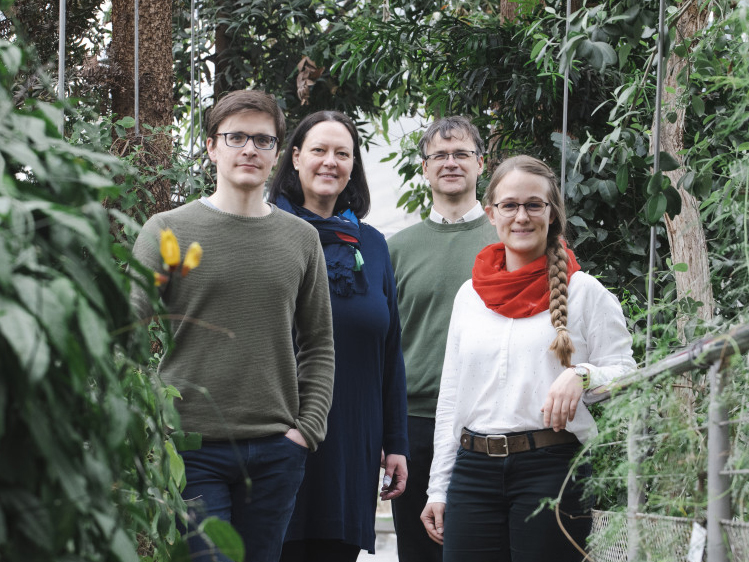Fieberhaft sucht die Welt nach sauberer Energie. Der völlige Ausstieg aus Öl, Gas und Kohle wird in vielen Bereichen noch dauern. Für die Herstellung von Medikamenten meldet sich eine tadellose Alternative aber verlässlich jeden Morgen: das Sonnenlicht. ForscherInnen der Universität Graz nutzen diese Energiequelle und steigern damit die Effizienz in der Produktion von Pharmazeutika um 100 Prozent. Im Fachjournal „Angewandte Chemie“ hat das Team rund um Silvia Glück und Wolfgang Kroutil kürzlich diese Ergebnisse veröffentlicht. Sie könnten die Pharmaindustrie bald sehr viel grüner machen.
Manche Moleküle sind wie Bild und Spiegelbild
Bei der Herstellung von Medikamenten wird viel Abfall produziert. Das liegt unter anderem daran, dass in manchen Fällen die Hälfte des Ausgangsmaterials für bestimmte Herstellungsschritte unbrauchbar ist. Schuld daran ist die Struktur der eingesetzten Moleküle. „Manche von ihnen kommen in zwei Formen vor, die einander ähneln wie Bild und Spiegelbild. Während sich die eine Variante als pharmazeutischer Wirkstoff eignet, kann die andere Schaden anrichten“, erklärt Wolfgang Kroutil. Bislang wurde die unerwünschte Molekül-Form deshalb einfach als Müll entsorgt. Gleichzeitig suchen WissenschafterInnen nach Wegen, um auch sie nutzbar zu machen.
Hier kommt Licht in die Sache
Den ChemikerInnen der Uni Graz ist genau das jetzt gelungen. Silvia Glück beschreibt die Methode: „Zunächst beschleunigen wir die Reaktion mit Biokatalysatoren. Diese umweltfreundlichen ‚Turbo‘-Teilchen sind fähig, zwischen den beiden Molekül-Formen zu unterscheiden. Zusammen mit dem zweiten Schritt, in dem mit der Energie des Sonnenlichts Sauerstoff aktiviert wird, kann die unerwünschte Molekül-Form in die gewünschte umgewandelt werden. Das Ergebnis ist zu hundert Prozent brauchbares Material bei einer völlig schadstofffreien, natürlichen Produktionskette.“
Das Projekt wird vom österreichischen Wissenschaftsfonds FWF gefördert und ist Teil des Profilbildenden Bereichs BioHealth an der Universität Graz.
Publikation: S. Bierbaumer, L. Schmermund, A. List, C. K. Winkler,* S. M. Glueck,* W. Kroutil, Synthesis of Enantiopure Sulfoxides by Concurrent Photocatalytic Oxidation and Biocatalytic Reduction. Angewandte Chemie Internation Edition 2022, e202117103. https://onlinelibrary.wiley.com/doi/full/10.1002/anie.202117103
